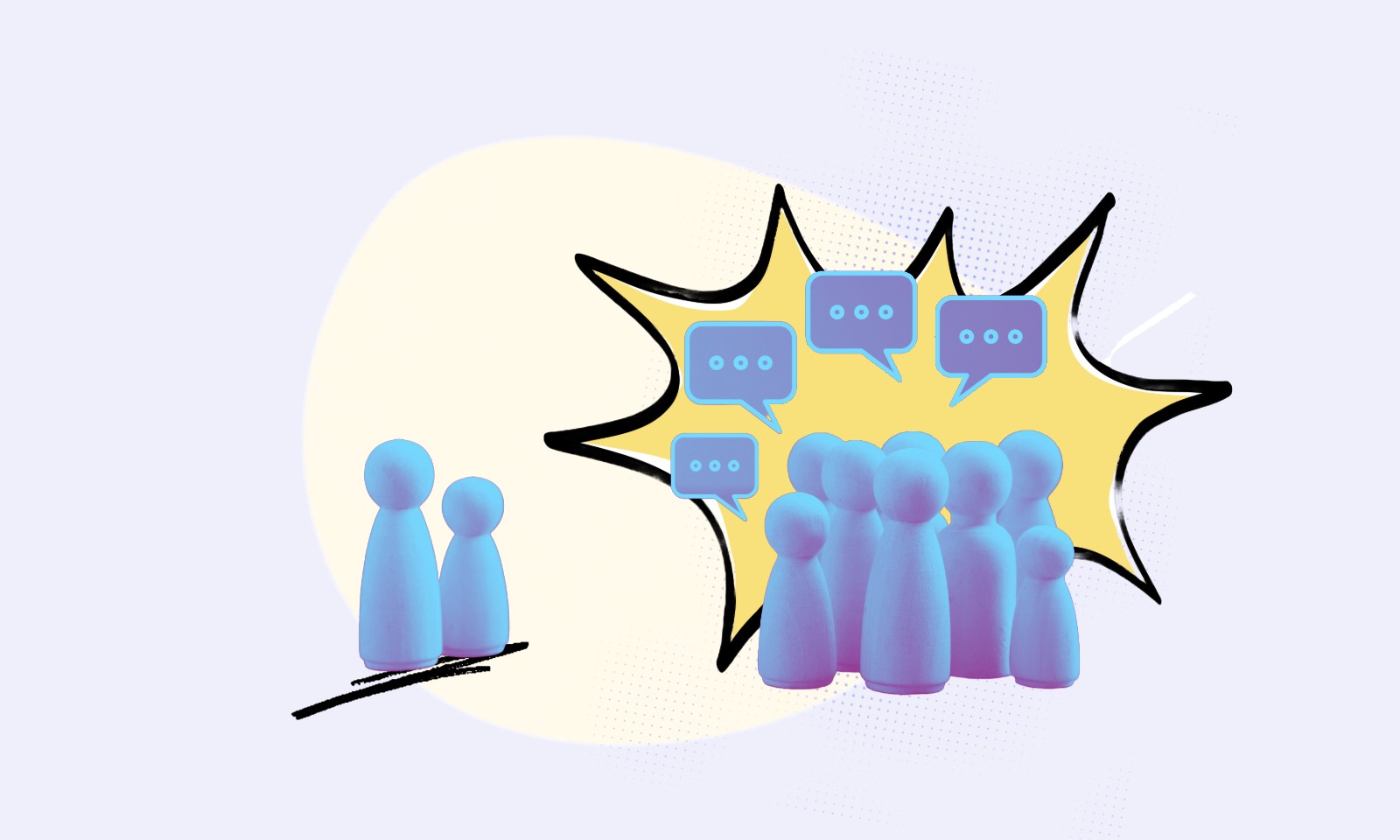Oct 31, 2023
Technology
3
min read

Nathan Saldaha
,
Sales Director
Understanding the Power of CDPs
The digital age has compelled businesses to harness customer data more efficiently. This quest has led to the rise of Customer Data Platforms (CDPs), engineered to unify customer data for better insights and engagement.
Pros of CDPs:
Unified customer view: CDPs assimilate data from various touchpoints, creating a single comprehensive customer profile. For example: An e-commerce platform can synchronise website, mobile app, and in-store data to offer personalised deals.
Real-time data activation: CDPs allow marketers to make decisions based on live data. For example: A user reading about organic products can be immediately targeted with organic product ads.
Enhanced segmentation: Facilitates hyper-targeted marketing strategies. For example: A sports brand can segment users based on the sports they are interested in and tailor campaigns accordingly.
Cons of CDPs:
Implementation complexities: Integrating various data sources can be technically challenging. For example: Merging legacy system data with modern databases can result in compatibility issues.
Potential overhead: Not all businesses might require the advanced capabilities of CDPs. For example: A small local store may not benefit from a full-fledged CDP in the same way a multinational e-commerce platform would.
Privacy concerns: Comprehensive data collection and utilisation can trigger privacy issues. For example: Businesses operating in the EU need to be GDPR compliant to ensure they're handling customer data responsibly.
Why Sitecore's Customer Data Platform stands out
When evaluating CDP options, Sitecore distinctly shines for several compelling reasons:
Personalisation at scale: It's AI-driven engine ensures bespoke customer interactions. For example: A travel website can display personalised holiday packages based on a user's past travel history.
Extensive integration capabilities: Rooted in the Sitecore ecosystem, it integrates perfectly with other Sitecore offerings. For example: A business using Sitecore's content management can effortlessly sync content strategies with customer insights.
When evaluating your CDP options, it's essential to grasp what sets Sitecore's Customer Date Platform apart. Beyond its ability to offer personalisation at scale and its extensive integration capabilities, several other factors accentuate its superiority:
Robust data management: Sitecore CDP provides tools to manage massive datasets, ensuring data accuracy and quality. For example: Automatic data cleansing removes duplicate and outdated data points, ensuring marketers base their decisions on fresh, reliable information.
Flexibility and customisation: Unlike many CDPs which come as rigid solutions, Sitecore allows for extensive customisation to cater to unique business needs. For example: An enterprise with a unique customer journey, involving multiple touch-points, can tailor the platform to align perfectly with its process.
Security and compliance: Sitecore places a premium on data security and helps businesses adhere to international data privacy regulations. For example: For companies operating in regions with strict data privacy laws like GDPR in Europe, Sitecore ensures data handling complies with necessary regulations, safeguarding against potential legal pitfalls.
AI and Machine Learning capabilities: Sitecore CDP is engineered with in-built AI tools that facilitate smarter customer insights, predictions, and actions. For example: Predictive analytics can forecast customer behaviours, allowing businesses to be proactive in their engagement strategies, such as predicting when a customer might churn and taking preventive action.
Seamless experience delivery across channels: Sitecore CDP excels in ensuring that the customer experience is consistent, whether they're interacting with a brand via a mobile app, website, or in-store. For example: A customer browsing products on a mobile app can be retargeted with relevant content when they switch to the desktop website, ensuring continuity.
Extensive ecosystem support: Being part of the Sitecore family, the CDP benefits from an ecosystem that includes content management, digital experience platforms, and more. For example: A company using Sitecore for content management can leverage those assets within the CDP for enhanced personalisation without the need for additional integrations.
CDP vs. CRM: Differentiating the two
A common point of contention is how CDPs differ from Customer Relationship Management (CRM) systems:
CDP: Designed for marketers, focusing on accumulating and unifying customer data from every interaction point. For example: Tracking a user's behaviour across different digital platforms to offer personalised content.
CRM: Aimed at sales and customer service, it documents customer interactions related to sales, feedback, and support. For example: Logging customer complaints and tracking their resolution timeline.
Who benefits most from Sitecore CDP?
Determining if Sitecore CDP aligns with your business needs is pivotal. With Sitecore CDP, these below sectors, among others, can transition from a one-size-fits-all approach to a tailored, individual-centric strategy, enhancing both engagement and outcomes.
Ecommerce platforms: Sitecore CDP can redefine online shopping experiences with bespoke product recommendations and insights. For example: Dynamically suggesting products based on a user's browsing history and past purchases.
Content-driven businesses: Publishers or media houses can benefit from personalised content delivery. For example: A news portal adjusting its homepage based on a user's preferred news categories.
Omnichannel retailers: Achieve consistent engagement across both online and offline realms. For example: Using online browsing data to offer personalised deals in physical stores.
Financial services: In a world where financial decisions are increasingly influenced by personalised advice and digital touch-points, the ability of Sitecore CDP to offer bespoke financial solutions can be game-changing. From personalised investment strategies to real-time alerts on financial trends based on an individual's portfolio, the opportunities are immense. For example: A bank using Sitecore CDP can analyse a customer's spending habits, transaction history, and financial goals to offer personalised loan or credit card offers. Similarly, an investment platform can suggest tailored investment strategies based on an individual's risk appetite and past investment behaviours.
Healthcare providers: Patient care today goes beyond the clinic or hospital. With Sitecore CDP, healthcare providers can offer a more tailored health experience, understanding patient histories, preferences, and needs more holistically. For example: A healthcare portal can suggest personalised wellness content or track patient medication and appointment schedules, sending reminders or suggesting periodic health check-ups based on past medical records.
Education institutions: Modern educational institutions, especially e-learning platforms, are keenly focused on delivering personalised learning experiences. Sitecore CDP can be pivotal in understanding a student's learning habits, course preferences, and performance trends. For example: An e-learning platform can use Sitecore CDP to track a student's progress, suggesting additional resources or courses based on their strengths and weaknesses. For instance, if a student frequently engages with content related to AI and machine learning, the platform can suggest advanced courses or relevant webinars in that domain.
Venturing into CDP implementation: precautions & strategies
The road to CDP implementation is strewn with challenges, but with the right strategy, these can be mitigated:
Data silos: Fragmented data repositories can undermine the value of your CDP, leading to incomplete customer views. Strategy: Adopt a phased integration and migration process. Begin with your most vital data sources, ensuring that they are seamlessly integrated, and gradually expand to incorporate others.
User training: The potential can only be realised if your team fully understands its capabilities and functionalities. Strategy: Implement a continuous learning plan. Regular workshops, hands-on sessions, and even bringing in Sitecore experts can ensure your team is always updated.
Data privacy: The richness of data that CDPs handle means a heightened responsibility to maintain data privacy. Strategy: Regularly audit data handling processes. Ensure all team members are trained on evolving privacy laws, and prioritise GDPR and other relevant compliance standards.
Clear goal setting: Without clear objectives, your CDP can become a sophisticated tool with no clear direction. Strategy: Prior to implementation, outline what you aim to achieve, whether it's better personalisation, enhanced segmentation, or real-time marketing.
Vendor collaboration: The success of Sitecore CDP also depends on the expertise of your implementation partner. Strategy: Choose a vendor like Codehouse with a proven track record with Sitecore implementations. Regularly collaborate, ensuring they align with your business goals and provide post-implementation support.
Technical compatibility: Ensuring that it seamlessly integrates with your existing tech stack is essential. Strategy: Conduct a tech audit. Identify any potential incompatibilities and work with your IT team to ensure smooth integration. This might also be the time to update any outdated systems.
Avoid 'over-personalisation': While personalisation is key, overdoing it can make customers uncomfortable. Strategy: Establish a personalisation guideline. Determine what level of personalisation enhances the user experience without being intrusive.
Regular data cleansing: Stale or redundant data can negatively impact your marketing efforts and customer insights. Strategy: Schedule regular data hygiene practices. Automate processes to flag or remove outdated information, ensuring the CDP operates with the most recent and relevant data.
Working with Codehouse
Choosing the right CDP can be the difference between a fragmented customer view and holistic, actionable insights. Sitecore's Customer Data Platform, with its impeccable personalisation and integration capabilities, stands out as a leader in this domain.
If you're aspiring to lead in customer engagement, Sitecore CDP isn't just an option; it's a strategic imperative. Get in touch to find out more.








